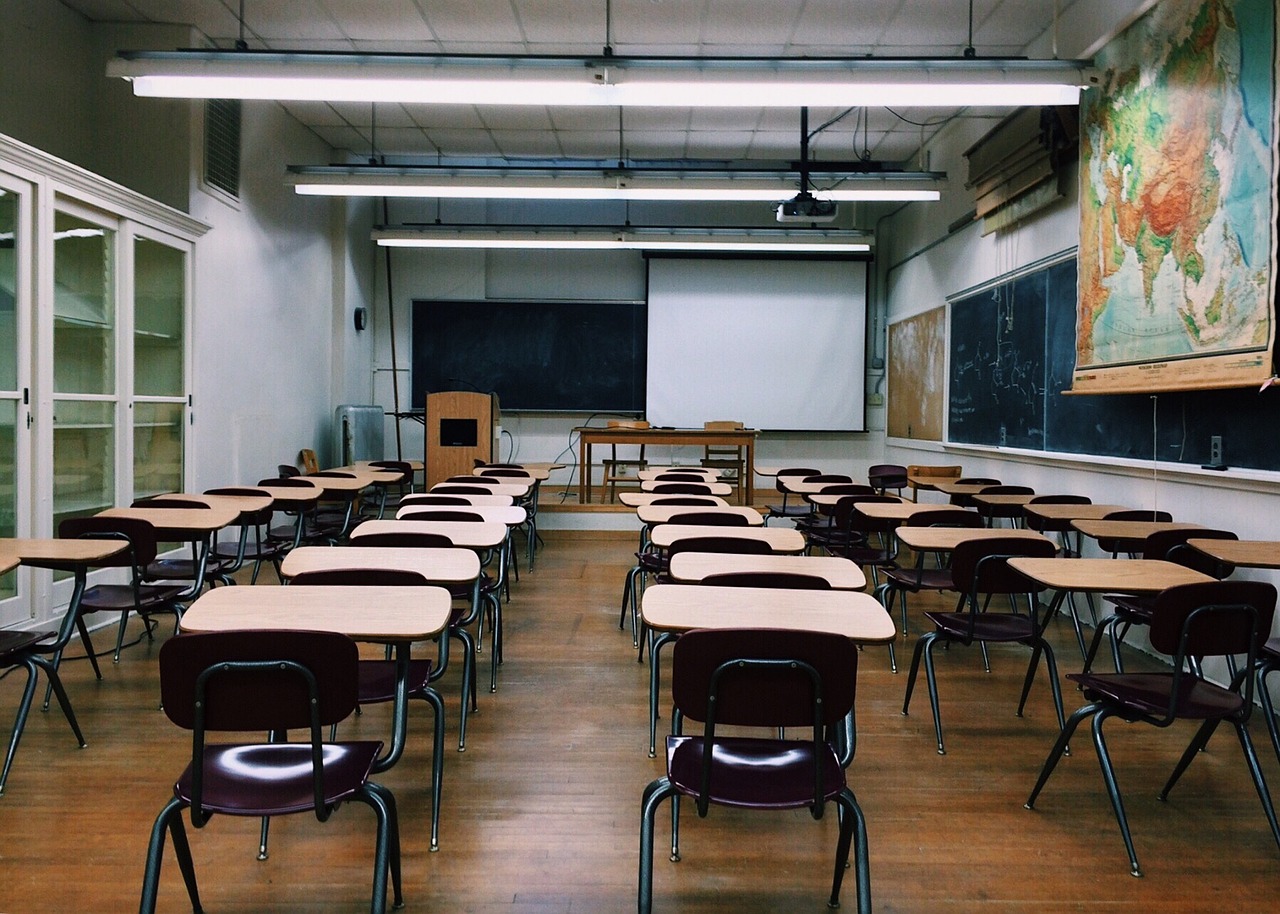10 Life Hacks for Students to Improve Study Habits
Are you a student looking to boost your study habits and academic performance? In this article, we will explore ten practical life hacks that can help you study smarter, not harder. These tips are designed to enhance your learning experience and make studying more efficient and effective.
First and foremost, creating a study schedule is key to staying organized and managing your time effectively. By establishing a consistent routine, you can improve your focus and productivity, ensuring that you cover all necessary material without feeling overwhelmed.
Utilizing active learning techniques is another powerful strategy to enhance your understanding and retention of course material. By summarizing key points, teaching others, and practicing retrieval, you can reinforce your learning and make studying more engaging and impactful.
Setting realistic goals is crucial for staying motivated and tracking your progress. By breaking down your study tasks into specific, achievable goals, you can maintain a sense of accomplishment and drive that will propel you towards academic success.
Optimizing your study environment is essential for creating a conducive space for learning. Good lighting, minimal distractions, and comfortable seating can all contribute to improved concentration and overall study efficiency.
Effective note-taking strategies play a significant role in organizing information and facilitating better understanding of concepts. Whether you prefer the Cornell method, mind mapping, or bullet points, finding a technique that works for you can make a world of difference in your study habits.
Technology can be a powerful ally in your academic journey. By leveraging study apps, online resources, and productivity software, you can streamline your study tasks, enhance your learning experience, and boost your overall performance.
Don't forget to prioritize self-care amidst your study routine. Engaging in activities like exercise, getting enough sleep, and maintaining healthy eating habits can improve your focus, memory retention, and overall well-being, ultimately leading to better study habits.
Joining peer study groups can provide valuable opportunities for collaborative learning and gaining new perspectives on course materials. By sharing knowledge and supporting each other, you can enhance your understanding and performance in your studies.
Knowing when to seek help is a sign of strength, not weakness. Whether it's reaching out to teachers, tutors, or academic advisors, seeking assistance when needed can provide valuable support, clarification on challenging topics, and guidance in improving your study habits for academic success.

Creating a Study Schedule
This article provides practical tips and tricks for students looking to enhance their study habits and academic performance through simple yet effective life hacks.
When it comes to improving study habits, one of the most crucial steps is creating a study schedule. By establishing a consistent routine, students can effectively manage their time and stay organized. Imagine your study schedule as a roadmap that guides you through the academic journey, ensuring you reach your destination successfully. With a well-structured study schedule, you can allocate specific time slots for different subjects or tasks, helping you prioritize and focus on what needs to be done.
Moreover, a study schedule can prevent procrastination and last-minute cramming sessions by breaking down your study sessions into manageable chunks. It allows you to spread out your workload evenly, reducing stress and enhancing retention of information. By treating your study schedule like a sacred commitment, you can cultivate discipline and develop a healthy study routine that aligns with your goals and aspirations.
Consider using a table to visually represent your study schedule, outlining the days of the week, time slots dedicated to each subject, and any additional study-related activities. This visual aid can serve as a powerful tool to track your progress, identify areas for improvement, and make necessary adjustments to optimize your study schedule for maximum efficiency.
Remember, creating a study schedule is not just about planning your study sessions; it's about setting yourself up for success by establishing a structured framework that supports your academic endeavors. Embrace the power of organization and time management to unlock your full potential as a student.
Q: How can I stick to my study schedule and avoid distractions?
A: To stay focused and avoid distractions while following your study schedule, consider implementing techniques such as the Pomodoro method, setting specific study goals, and creating a designated study space free from disruptions.
Q: Is it necessary to follow the study schedule rigidly, or can I be flexible with my study routine?
A: While having a structured study schedule is essential for consistency and productivity, it's also important to allow room for flexibility and adaptability. Be open to adjusting your study routine based on changing priorities and circumstances while ensuring you maintain a balance between discipline and flexibility.
Q: How can I determine the optimal study schedule that works best for me?
A: Experiment with different study schedules to find the one that suits your learning style, preferences, and commitments. Consider factors such as peak productivity hours, preferred study environments, and the balance between study time and breaks to tailor a schedule that maximizes your efficiency and effectiveness.

Utilizing Active Learning Techniques
Active learning techniques are powerful tools that can significantly enhance a student's understanding and retention of course material. Instead of passively absorbing information, active learning requires students to engage with the content actively. One effective method is summarizing the key points of a lesson in your own words. This not only helps in reinforcing the material but also aids in identifying the most crucial information.
Another valuable technique is teaching others. When you explain a concept to someone else, you deepen your understanding of the subject matter. It forces you to articulate the information clearly, filling any gaps in your knowledge. Additionally, practicing retrieval by actively recalling information without looking at your notes can strengthen memory retention and improve long-term learning.
By incorporating these active learning strategies into your study routine, you can transform your learning experience from passive to engaging, leading to better comprehension, retention, and academic performance.

Setting Realistic Goals
This article provides practical tips and tricks for students looking to enhance their study habits and academic performance through simple yet effective life hacks.
When it comes to setting realistic goals for your studies, it's important to be specific and achievable. Think of your goals as stepping stones towards your ultimate academic success. By breaking down your study objectives into manageable tasks, you can stay motivated and track your progress effectively.
Imagine your goals as a roadmap guiding you through your academic journey. Just like a GPS helps you navigate to your destination, setting realistic study goals can keep you on the right track and prevent you from feeling overwhelmed. Remember, small victories lead to big achievements!
One effective way to set realistic goals is by using the SMART criteria: Specific, Measurable, Achievable, Relevant, and Time-bound. By following these guidelines, you can ensure that your study goals are clear, attainable, and aligned with your academic aspirations.
Moreover, creating a visual representation of your goals, such as a study planner or a progress chart, can serve as a constant reminder of what you aim to achieve. This visual cue can motivate you to stay focused and dedicated to your study routine.
Setting realistic goals is not simply about the destination but also about enjoying the journey. Celebrate your milestones along the way, whether it's completing a challenging assignment or mastering a difficult concept. By acknowledging your progress, you can boost your confidence and maintain a positive attitude towards your studies.
Q: How can I stay motivated to achieve my study goals?
A: To stay motivated, try breaking down your goals into smaller tasks, rewarding yourself for accomplishments, and visualizing the benefits of achieving your objectives.
Q: What should I do if I struggle to meet my study goals?
A: If you find it challenging to meet your study goals, consider revisiting and adjusting them to be more realistic and manageable. Additionally, seek support from peers, teachers, or academic advisors for guidance and encouragement.

Optimizing Study Environment
Creating an optimal study environment is crucial for maximizing focus and productivity. Imagine your study space as a garden – just like plants need the right amount of sunlight and water to thrive, you need the perfect conditions to flourish academically. Start by ensuring your study area has good lighting to prevent eye strain and enhance alertness. Natural light is ideal, but if that's not possible, consider using a bright desk lamp to illuminate your workspace.
Next, declutter your study area to minimize distractions. Just as a cluttered desk can lead to a cluttered mind, a tidy workspace can help you maintain mental clarity and stay focused on your studies. Keep only the essentials within reach, such as textbooks, notebooks, and study materials, to avoid unnecessary distractions.
Comfort is key when it comes to optimizing your study environment. Invest in a comfortable chair that supports good posture to prevent back pain and discomfort during long study sessions. Additionally, consider adding ergonomic accessories like a wrist rest or monitor stand to promote proper body alignment and reduce strain.
Another aspect to consider is the temperature of your study space. Just like Goldilocks searching for the perfect porridge, aim for a temperature that is not too hot or too cold but just right. Studies have shown that a moderate room temperature can improve cognitive performance and focus, so adjust the thermostat accordingly.
Lastly, personalize your study area to make it a welcoming and inspiring space. Add motivational quotes, plants, or artwork that uplift your mood and keep you motivated. By creating a study environment that is tailored to your preferences and needs, you can enhance your concentration, productivity, and overall study experience.

Effective Note-Taking Strategies
When it comes to effective note-taking strategies, students have a variety of methods to choose from based on their learning style and preferences. One popular technique is the Cornell method, which involves dividing your notes into different sections for main points, details, and summaries. This structured approach can help students organize information and review key concepts more efficiently.
Another effective strategy is mind mapping, a visual technique that allows students to connect ideas and concepts in a hierarchical manner. By creating a visual representation of information, students can better understand relationships between different topics and improve their overall comprehension.
For those who prefer a more concise format, using bullet points can be a practical way to highlight key information and simplify complex ideas. Bullet points can make it easier to scan through notes quickly and identify important details without getting overwhelmed by lengthy paragraphs.
Furthermore, incorporating color coding into your notes can enhance organization and aid in information retrieval. Assigning different colors to specific topics or categories can help students visually distinguish between different concepts and make connections more effectively.
Overall, the key to effective note-taking is to find a method that works best for you and aligns with your study habits. Experimenting with different techniques and adapting them to suit your needs can significantly improve your ability to retain information and succeed academically.

Utilizing Technology Wisely
This article provides practical tips and tricks for students looking to enhance their study habits and academic performance through simple yet effective life hacks.
When it comes to studying, technology can be a powerful ally if used wisely. By leveraging various tech tools, students can streamline their study tasks, enhance their learning experience, and ultimately boost their academic performance. From study apps to online resources and productivity software, the possibilities are endless.
One effective way to utilize technology is by using study apps that cater to specific needs, such as flashcard apps for memorization or task management apps for organizing study schedules. These apps can help students stay on top of their assignments, deadlines, and revision notes, making studying more efficient and effective.
Online resources also play a crucial role in modern studying. Platforms like online libraries, academic databases, and educational websites offer a wealth of information at students' fingertips. By accessing these resources, students can deepen their understanding of course materials, conduct research, and broaden their knowledge beyond the classroom.
Moreover, productivity software can be a game-changer for students aiming to optimize their study habits. Tools like note-taking apps, mind mapping software, and collaboration platforms facilitate information organization, brainstorming, and group projects. By incorporating these tools into their study routine, students can work smarter, not harder.
However, it's essential for students to use technology mindfully and avoid distractions that may hinder their learning process. Setting boundaries, managing screen time, and staying focused on the task at hand are key to making the most of technology in studying. Remember, technology should complement your study habits, not replace them.
By harnessing the power of technology wisely, students can enhance their study habits, improve their academic performance, and embark on a successful learning journey fueled by innovation and efficiency.
Q: How can I create a study schedule that incorporates technology?
A: You can use calendar apps or study planner apps to schedule study sessions, set reminders for assignments, and track your progress. Integrating technology into your study schedule can help you stay organized and on track.
Q: Are there any recommended study apps for students?
A: Yes, there are various study apps available, such as Quizlet for flashcards, Forest for focus and productivity, and Evernote for note-taking and organization. Explore different apps to find the ones that best suit your study needs.
Q: How can I avoid distractions while using technology for studying?
A: To minimize distractions, consider using website blockers, setting specific study hours without interruptions, and creating a dedicated study space free from distractions like social media or notifications.

Practicing Self-Care
Practicing self-care is essential for students to maintain their well-being and enhance their study habits. Just like a car needs regular maintenance to perform well on the road, students need to take care of themselves to function at their best academically. Think of self-care as the fuel that powers your academic engine. When you prioritize activities like exercise, proper sleep, and healthy eating, you are essentially giving your brain the support it needs to absorb information effectively and retain it for longer periods.
Imagine trying to drive a car with an empty gas tank; it simply wouldn't work. Similarly, if you neglect your self-care needs, your study sessions may lack the energy and focus required to make them productive. Exercise, whether it's a quick walk, yoga session, or a gym workout, can boost your energy levels and improve your mood, making studying feel less like a chore and more like a rewarding activity.
Furthermore, adequate sleep is like charging your brain's battery overnight. It allows your mind to process information, consolidate memories, and prepare for the next day's challenges. By ensuring you get enough rest each night, you are setting yourself up for success in your academic endeavors.
Healthy eating habits play a crucial role in supporting your brain function. Just as a high-performance car requires premium fuel to operate efficiently, your brain needs nutritious foods to function optimally. Incorporating brain-boosting foods like fruits, vegetables, whole grains, and lean proteins into your diet can enhance your cognitive abilities and help you stay focused during study sessions.
Remember, self-care is not a luxury but a necessity, especially for students juggling academic responsibilities. By taking care of your physical and mental well-being, you are investing in your academic success in the long run. So, don't overlook the power of self-care in improving your study habits and overall performance.

Engaging in Peer Study Groups
Joining peer study groups can be a game-changer for students looking to enhance their study habits and academic performance. By collaborating with classmates, you not only gain new perspectives on course materials but also create a supportive learning environment that fosters motivation and engagement. Peer study groups provide a platform for sharing knowledge, discussing challenging topics, and clarifying doubts in a collaborative setting.
When engaging in peer study groups, it is essential to establish clear goals and expectations to ensure productive sessions. Setting specific objectives for each study session can help keep the group focused and on track. Additionally, dividing tasks among group members based on individual strengths can maximize efficiency and effectiveness.
Furthermore, peer study groups offer a valuable opportunity for interactive learning through discussions, debates, and peer teaching. Explaining concepts to others not only reinforces your understanding but also helps solidify your knowledge. By actively participating in group discussions and activities, you can deepen your comprehension of the subject matter and boost your academic performance.
Moreover, peer study groups can serve as a source of motivation and accountability. By committing to regular study sessions with your peers, you are more likely to stay disciplined and dedicated to your academic goals. The collective support and encouragement within the group can inspire you to strive for excellence and maintain a positive attitude towards learning.
In conclusion, engaging in peer study groups can enrich your learning experience, enhance your study habits, and contribute to your overall academic success. By leveraging the collective knowledge, skills, and support of your peers, you can navigate through challenging coursework more effectively and achieve your educational goals with confidence.

Seeking Help When Needed
When it comes to academic challenges, knowing when to seek help can make a significant difference in a student's learning journey. While independence is essential, there are times when seeking assistance is crucial for overcoming obstacles and improving study habits.
Teachers and tutors are valuable resources that students should not hesitate to approach. These professionals can provide clarification on complex topics, offer additional explanations, and guide students in the right direction. By seeking help from educators, students can gain a deeper understanding of course material and enhance their academic performance.
Moreover, academic advisors play a crucial role in supporting students throughout their academic endeavors. Whether it's choosing the right courses, planning a study schedule, or addressing academic concerns, advisors can offer personalized guidance to help students navigate challenges and achieve their academic goals.
Collaborating with peers can also be beneficial when seeking help. Joining study groups allows students to engage in collaborative learning, share knowledge, and gain new perspectives on challenging subjects. By working together with classmates, students can tackle difficult topics collectively and enhance their overall understanding of course material.
Additionally, online resources and academic support services can be valuable tools for students seeking help outside the classroom. Websites, forums, and virtual tutoring platforms offer a wealth of information and assistance that can complement traditional learning methods. By taking advantage of these resources, students can access additional learning materials, practice exercises, and expert guidance to supplement their studies.
Frequently Asked Questions
- What are some effective study schedule tips for students?
Creating a study schedule that includes dedicated time slots for each subject, setting specific study goals, and incorporating short breaks can help students stay organized and focused.
- How can active learning techniques benefit my study habits?
Active learning methods like summarizing content, teaching others, and engaging in discussions can enhance understanding, retention, and application of course material, making studying more effective.
- Why is setting realistic goals important for academic success?
Setting achievable study goals provides students with a sense of direction, motivation, and progress tracking, which can boost their confidence, productivity, and overall academic performance.
- What role does the study environment play in improving study habits?
An optimized study environment with good lighting, minimal distractions, and comfortable seating can significantly improve concentration, focus, and information retention during study sessions.
- How can peer study groups enhance my learning experience?
Engaging in peer study groups allows students to exchange knowledge, discuss challenging topics, and gain different perspectives, fostering collaborative learning and deeper understanding of course materials.



















